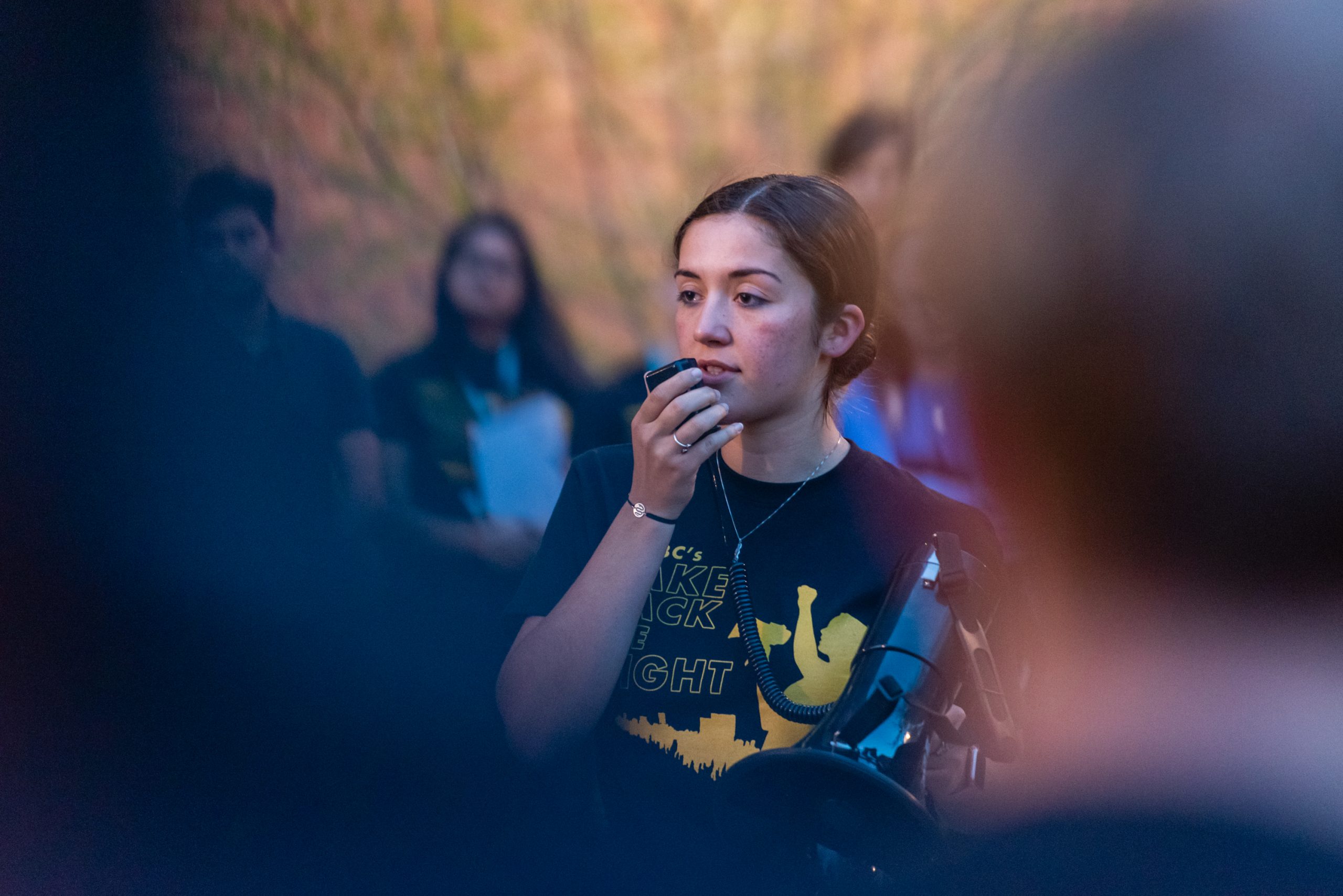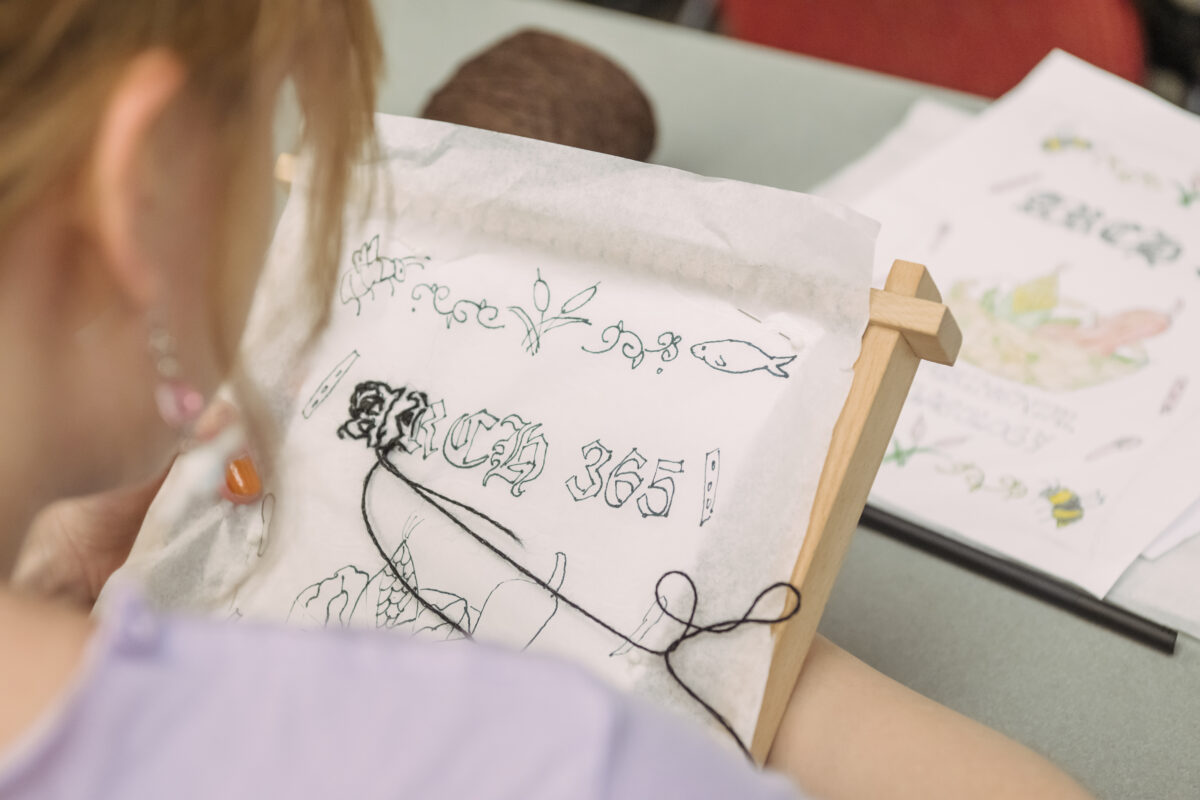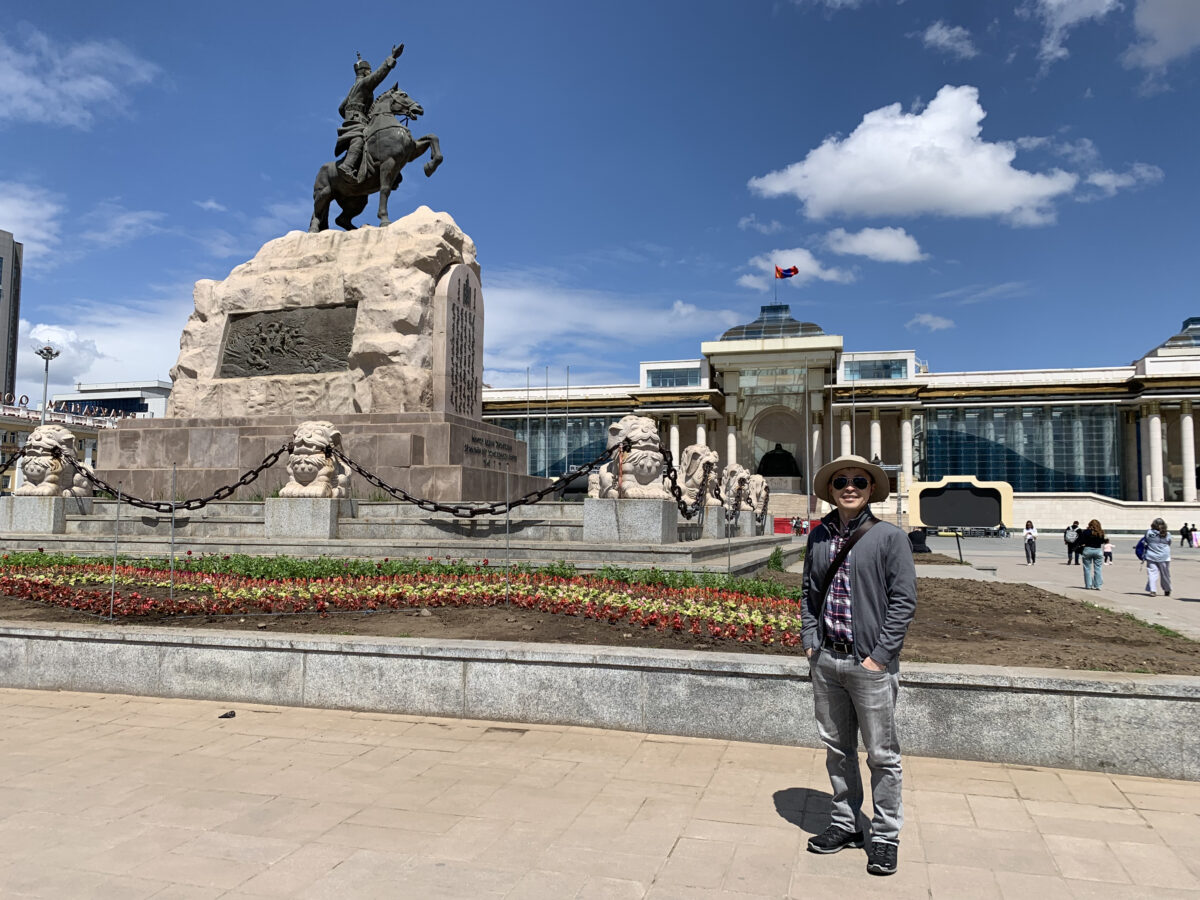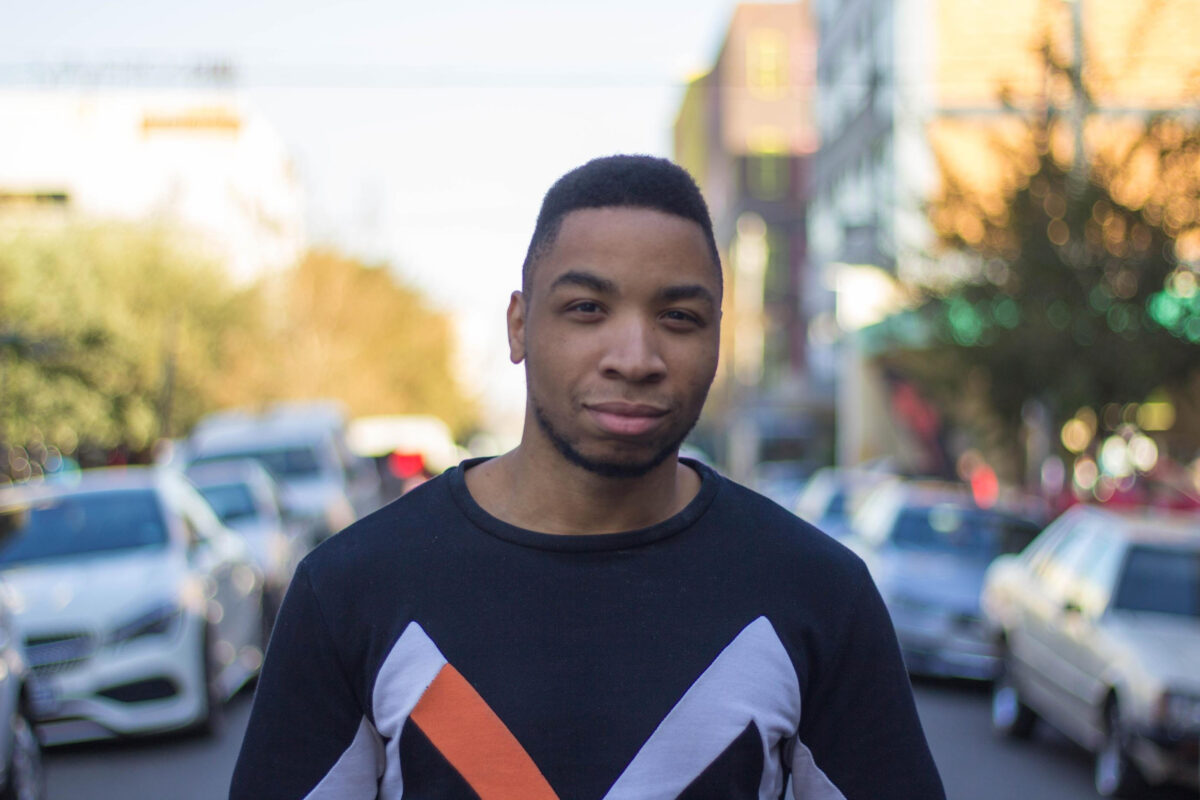For Nadia BenAissa ’20, gender, women’s, and sexuality studies (GWST), and Sam Hertl ’20, social work, UMBC has been a place to grow as leaders and advocates. Their college experiences have been defined by their work to educate, speak out, and create resources for survivors of sexual assault and LGBTQIA+ students at UMBC.
As the university community has responded to COVID-19 and transitioned to a virtual environment, BenAissa and Hertl have held steadfast in their commitments. They have continued working to create supportive spaces online and make sure that survivor and LGBTQIA+ voices are heard. At the same time, as seniors graduating during a pandemic, they have been managing their own sense of loss.
Centering the experience of survivors
BenAissa became involved with the Women’s Center as a sophomore after supporting her best friend through the Title IX process. “We needed to do something with our grief, and our sadness at the outcome of the process, but at the time there was no discussion group around the shared experience of trauma when we needed it most,” she explains.
BenAissa began researching Title IX, the federal law that proxihibits sex discrimination, sexual assault, and sexual harassment in education settings, for a class. “Nadia’s incredible focus and sharp intellect showed in her fine work in that course,” says her professor, GWST Chair Carole McCann.
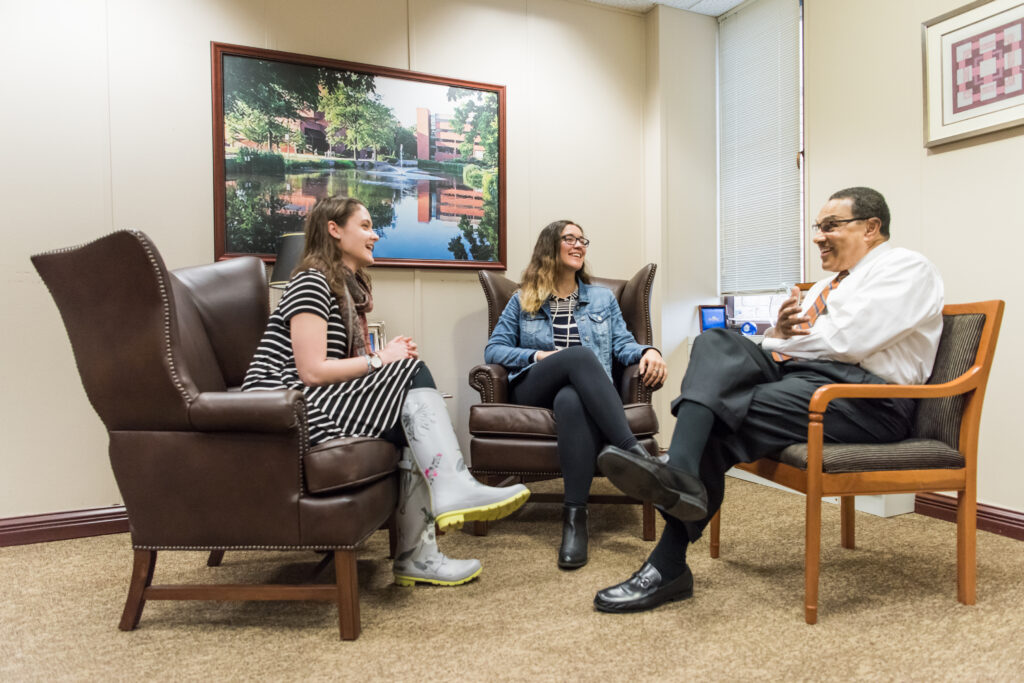
Then, in 2017, she and her friend founded We Believe You, an activist/advocacy and discussion group centered around survivors, with help from Women’s Center Director Jess Myers and Assistant Director Amelia Meman. BenAissa’s detailed research “prepared her to lead the We Believe You group through its subsequent challenges and successes,” says McCann.
While We Believe You was getting ready to celebrate its one-year anniversary in 2018, UMBC launched Retriever Courage. UMBC created this campus-wide initiative in response to a call from students, faculty, and staff for the university to better prevent and respond to sexual assault and violence.
Seeing results
As president of We Believe You, BenAissa met with President Freeman Hrabowski and other campus leaders to discuss major challenges and possible steps forward. She then stepped into additional leadership roles as a member of the Retriever Courage implementation team and co-chair of the Student Advisory Committee.
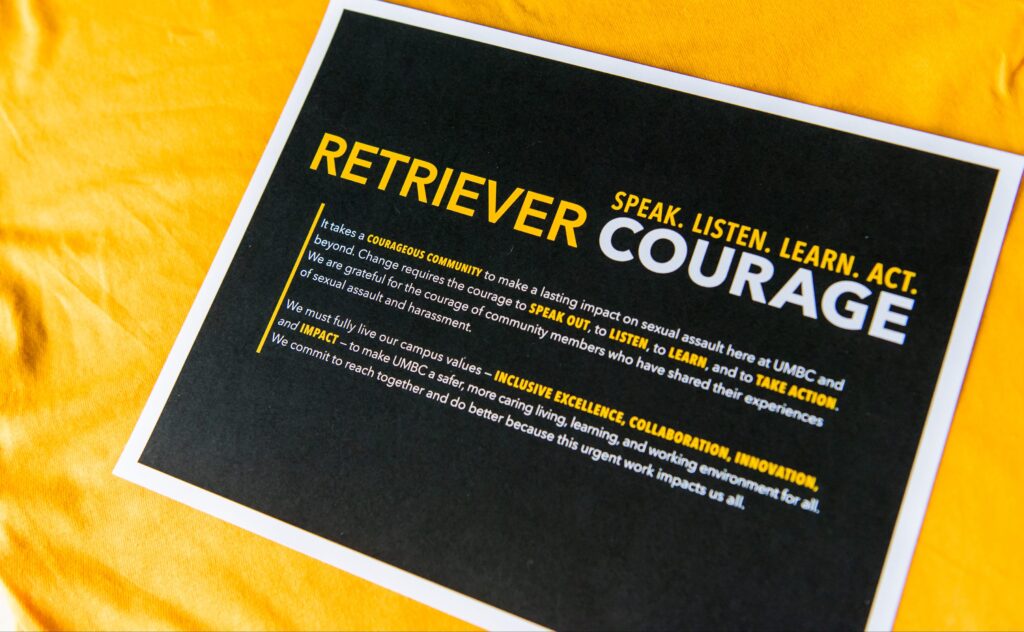
At the same time, BenAissa accepted an invitation from Baltimore County Executive John Olszewski, Ph.D. ’17, public policy, to join the County’s newly created sexual assault investigations task force.
BenAissa’s collaborative work with students, faculty, and staff led to UMBC launching mandatory Title IX training and an Office of Equity and Inclusion, and hiring more counseling staff. As part of We Believe You, BenAissa also worked with the implementation team to develop two resource stands in The Commons. They will eventually be replicated at other locations across campus.
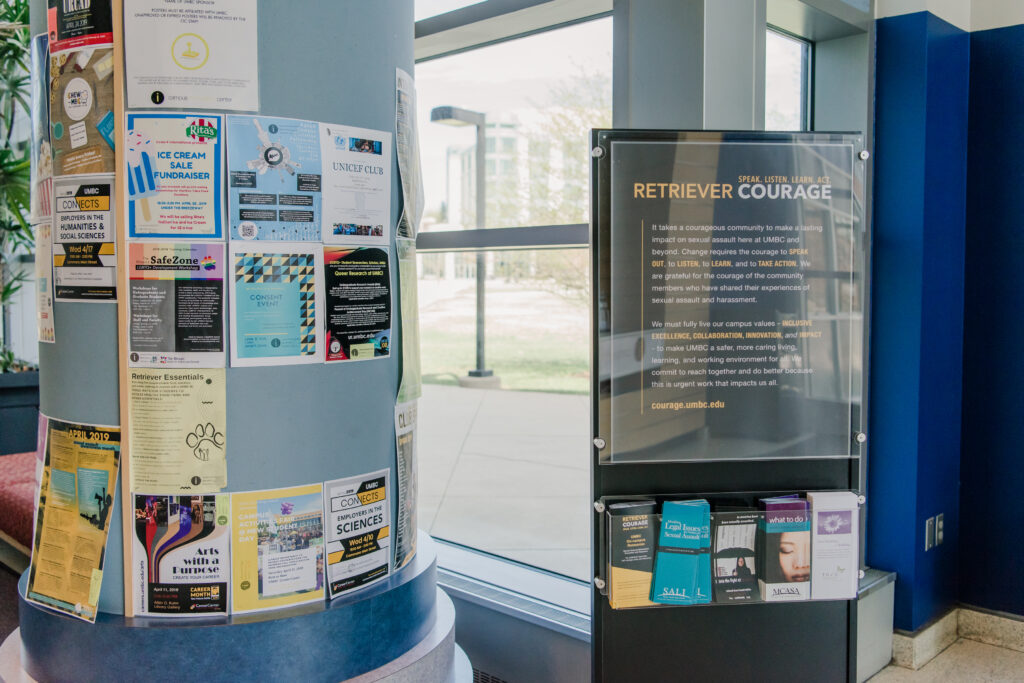
“Through her leadership of Retriever Courage, Nadia has already changed the campus for the better in how we confront sexual violence,” says Kate Drabinski, GWST senior lecturer and director of the Women Involved in Learning and Leadership program.
“Nadia is a fierce advocate who consistently speaks truth to power on behalf of survivors,” Myers adds. I believe she’s helped all of us be braver in this work.”
Building space for LGBTQIA+ students
Hertl became increasingly involved in advocacy for LGBTQIA+ students, particularly trans students, as a member of UMBC’s University Health Services (UHS) Student Health Advisory Council. They used their voice to help find ways for UHS and the Counseling Center to be more affirming of trans students. Some of their solutions were simple to implement, but powerful, such as placing pronoun buttons in the waiting rooms for students to wear.
In their junior year, they attended a Women’s Center program and quickly became involved in the Center’s work. Eventually, they became a Women’s Center intern for their social work field placement.
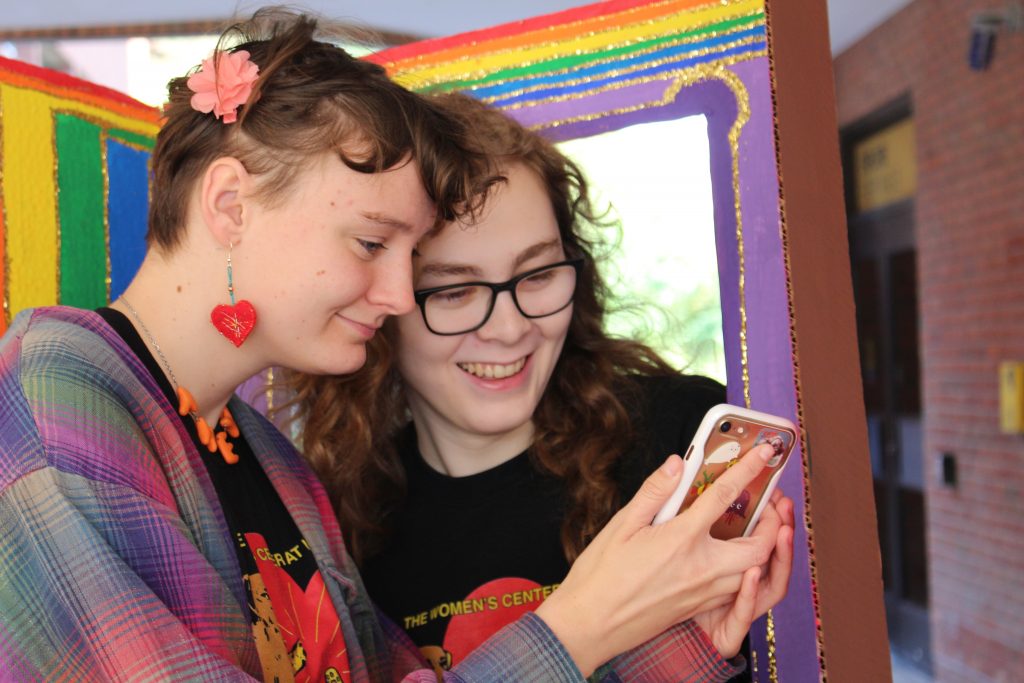
In that role they served as a facilitator for Between Women. This discussion-based program centers the experience of women students who identify as LGBTQIA+. They also supported We Believe You, promoted Women’s Center events and resources, and began writing about LGBTQIA+ and accessibility issues.
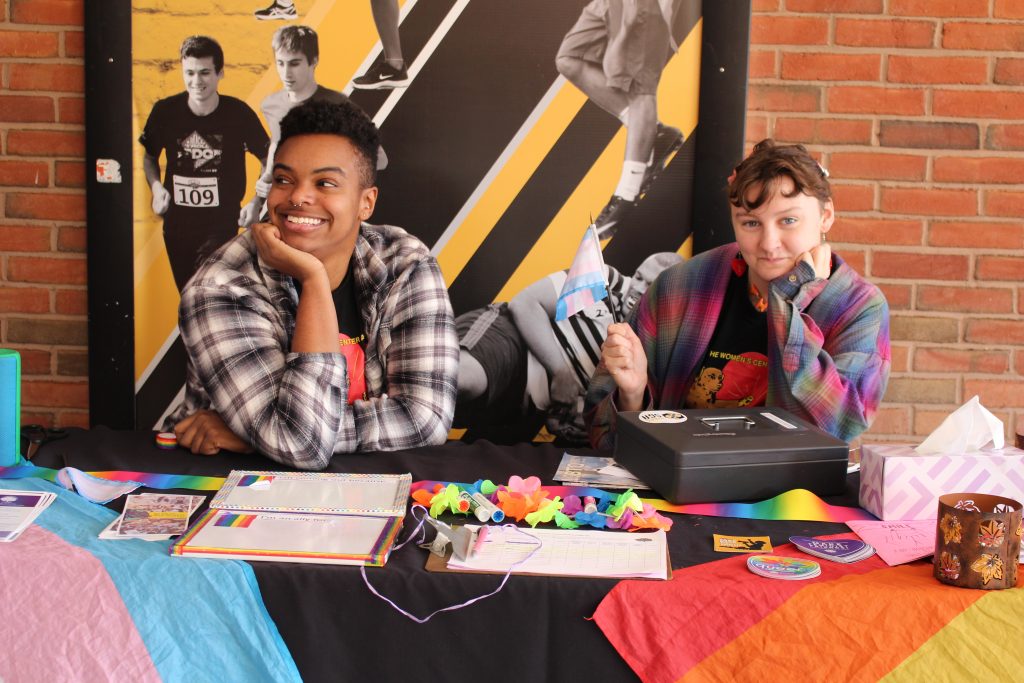
This was all on top of the work supporting students as a residential assistant and social work courses, preparing for a public service career.
“In everything that they do, Sam strives to build an affirming, compassionate space for the LGBTQIA+ community,” says Meman. “Whether that’s in Residential Life, the classroom, or the Women’s Center, they are a truly rare person who is able to both bring people together and challenge them to be better human beings.”
Online community-building
The transition to online learning has been especially disruptive for the survivor and LGBTQIA+ communities, BenAissa and Hertl share. Both groups rely on communities of support, and have had to find new ways to connect online. BenAissa and Hertl have been determined to offer them continuity and community when they need it most.
Women’s Center groups like We Believe You’s discussion group continue to meet online. “I was especially impressed to see Sam easily replicate their skills of support once we moved online,” says Myers. “In virtual discussions they’ve modeled that care and compassion can be translated across distance and via our computer screens.”
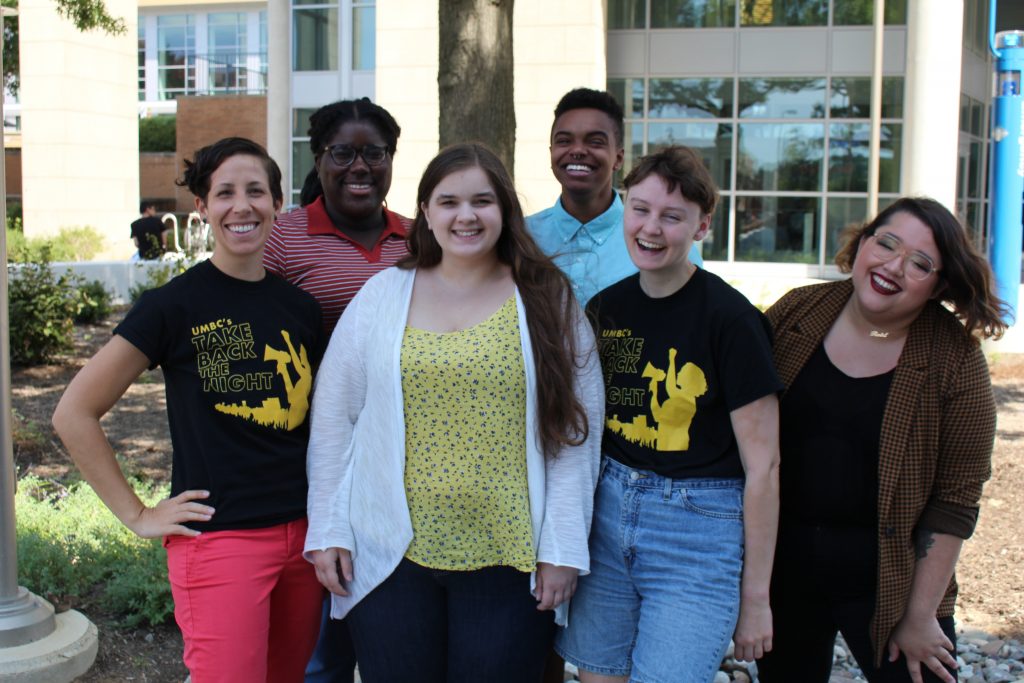
Still, online group meetings don’t meet the needs of all students. Hertl explains, “It’s challenging because survivors and LGBTQIA+ students may be in an unsafe environment—home with perpetrators or with family members who aren’t aware of how they identify or who don’t approve of their choices.”
BenAissa and Hertl have also focused on using social media, which can be more anonymous, to connect students with resources. During Sexual Assault Awareness month, the Women’s Center created an online zine where survivors could tell their stories. They then hosted an Instagram Live event for contributors to read their submissions, or just tune in to hear others speak.
“It’s all new territory,” says BenAissa. “We look at what we as individuals can do, continue providing resources on social media, and keep speaking out about issues like consent and boundaries. We can hold space for one another and be kind.”
Coping with loss, strengthening connections
During the distance learning period, BenAissa and Hertl also missed seeing their own support communities in person. They grieved the loss of spring community activities and the graduation experiences they were expecting.
“I miss being on campus, leading the Take Back the Night march, and keeping people invested in what we’ve been building. There’s a lack of closure,” explains BenAissa.
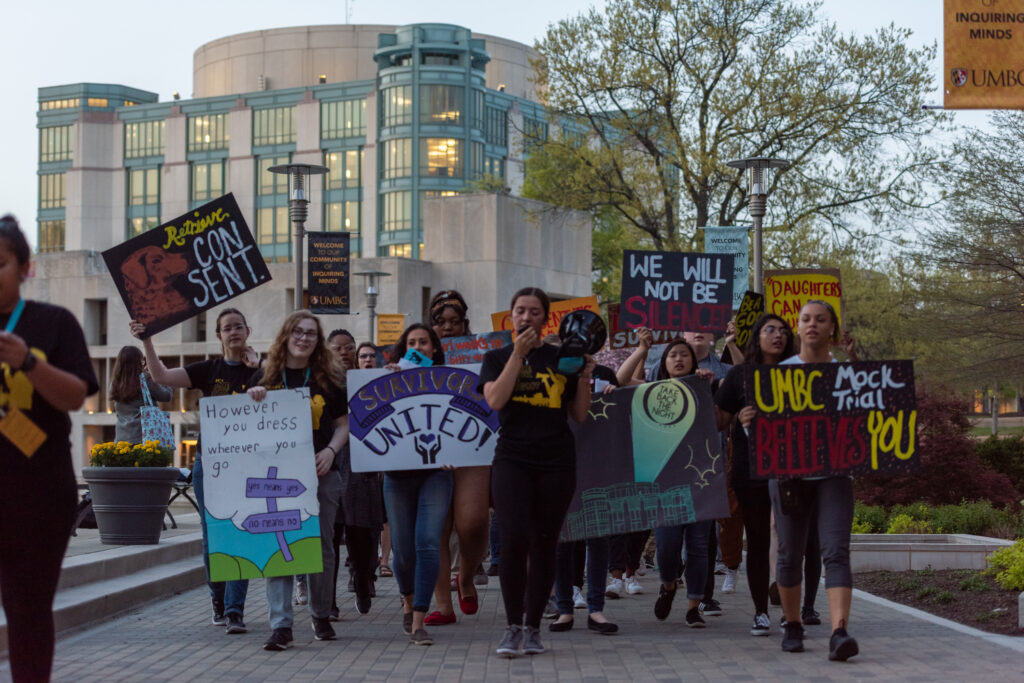
Still, she is doing her best. Over the last two months, BenAissa adapted her URCAD research on inequities in university Title IX processes into an online presentation. As captain of the Women’s Ultimate Frisbee team, she dealt with the disappointment of a canceled season. Still, she keeps in touch with teammates online, and she looks forward to joining the club’s active alumni community.
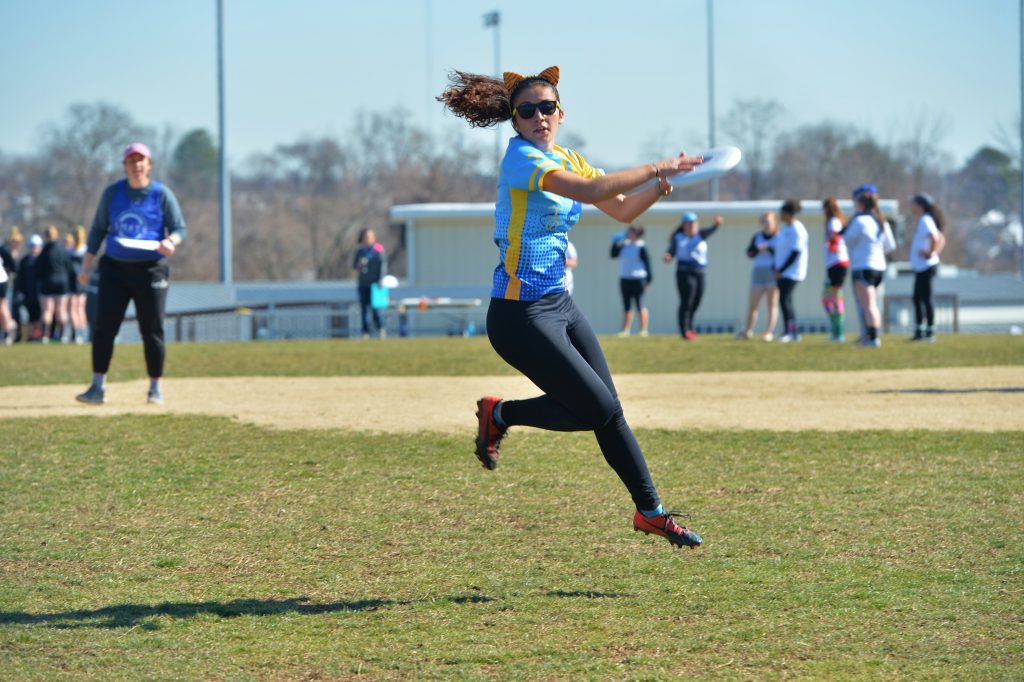
Hertl feels melancholy at times, and thinks about missing out on this year’s Quadmania and Take Back the Night. Continuing to support other students as a residential assistant and through work with the Women’s Center keeps them centered and engaged.
“There are so many unknowns right now,” says Hertl. “I just want to make sure people know what’s happening and where they can go for help.”
Continuing their commitment
Following graduation, Hertl will enter the University of Maryland, Baltimore’s accelerated master’s in social work program. There, they will focus on social policy and community action, particularly in working with trans and nonbinary people, as well as people with disabilities and people who are experiencing homelessness.
Hertl has also accepted a 2020 – 21 graduate assistantship at UMBC. This means the university will continue to benefit from their commitment to inclusivity.
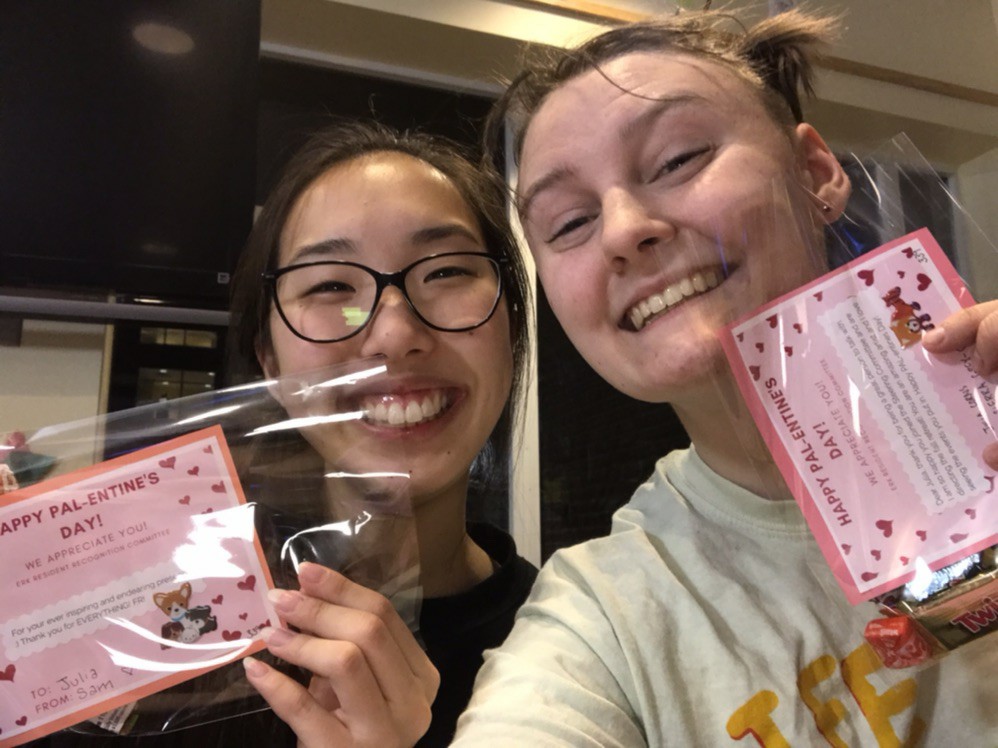
BenAissa plans to continue advocating for survivors in higher education. “I want to work to ensure survivors are centered in the policies that affect them and make sure they get the resources they need,” she says. “I’m not finished with this work, and I’m not finished being part of We Believe You, Retriever Courage, or UMBC.”
“The work we’ve done through Retriever Courage is a step in the right direction,” BenAissa continues. “We’re headed toward the standard we need to have here, and we will exceed that standard because we are UMBC. And UMBC has been great at giving me ways to be my best.”
Article written by Eleanor Lewis, communication specialist in the Division of Student Affairs.
Featured image: BenAissa speaks at Take Back the Night. Photo by Ian Feldmann.
Tags: CAHSS, ClassOf2020, GWST, retrievercourage, SocialWork, WomensCenter

